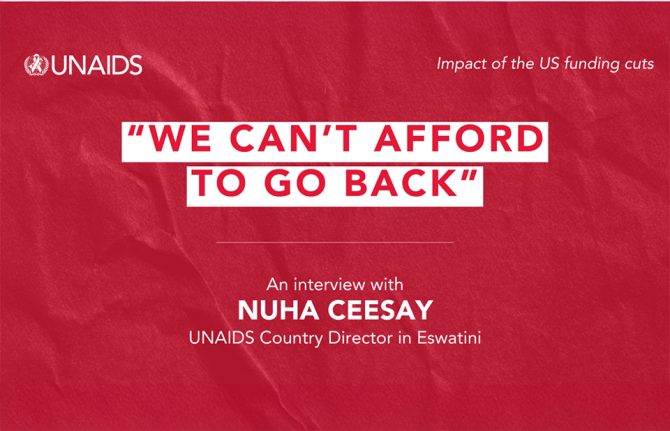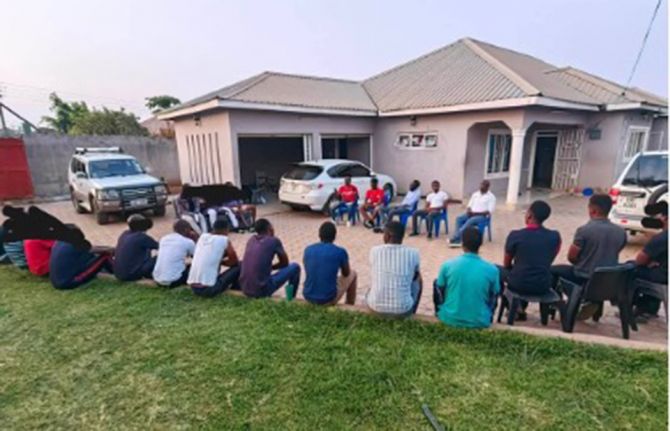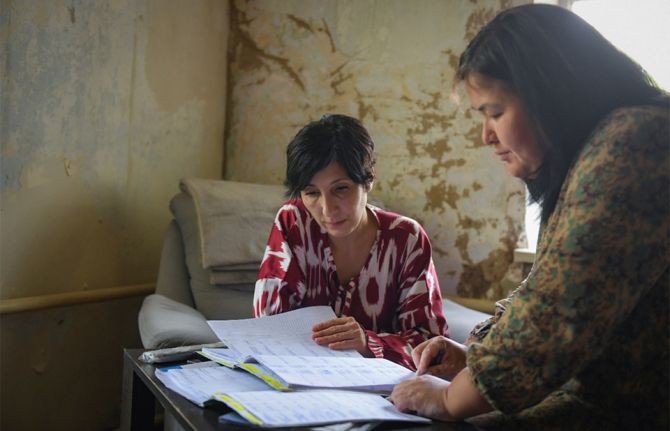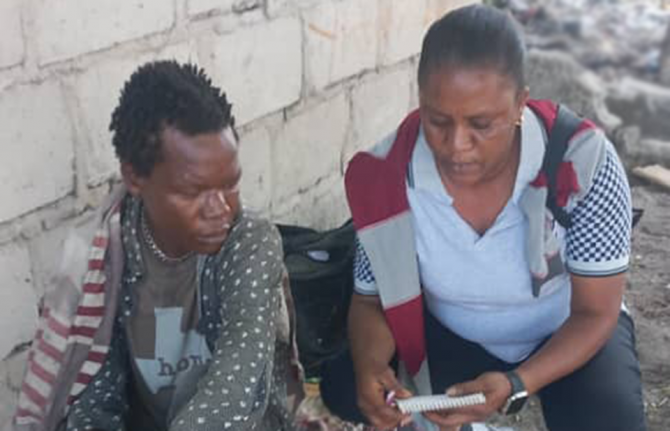
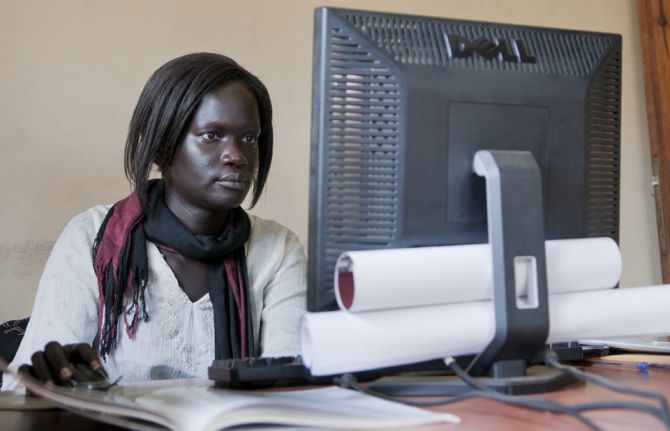
Update
Almost 5 million workers reached under ILO’s VCT@WORK initiative and 3 million tested for HIV
14 July 2016
14 July 2016 14 July 2016The International Labour Organization (ILO) has announced that the initial phase of its VCT@WORK initiative has reached close to 5 million workers with face-to-face education on the benefits of HIV testing. During the outreach, which took place between July 2013 and December 2015, almost 3 million workers were tested for HIV, and more than 85 000 people who tested positive for HIV were referred to services for treatment. The ILO, UNAIDS and partners will present the results of the initiative at the 21st International AIDS Conference, taking place from 18 to 22 July in Durban, South Africa.
Quotes
“For the first time, we have results that clearly demonstrate the impact of a workplace response to HIV. When workers have timely knowledge of their HIV status, they can take the right treatment and continue to be healthy and productive members of the workforce.”
“This is the kind of innovation needed to reach people with HIV services in their everyday lives. This is the Fast-Track response in action—normalizing testing and ensuring more people know their HIV status and are linked with local care and support.”

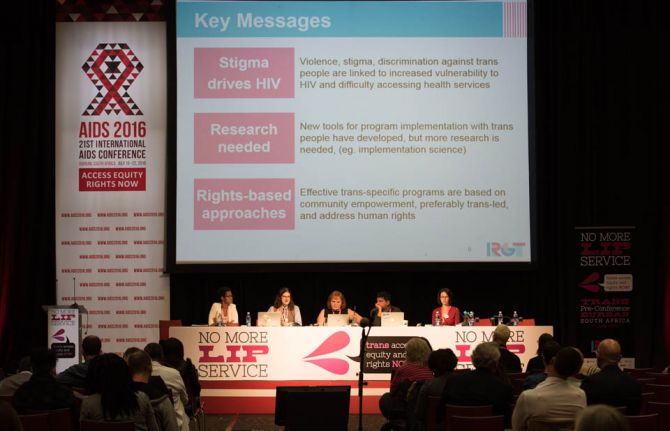
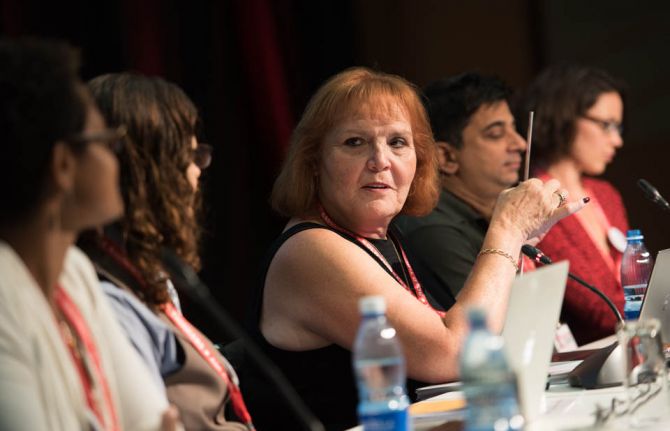
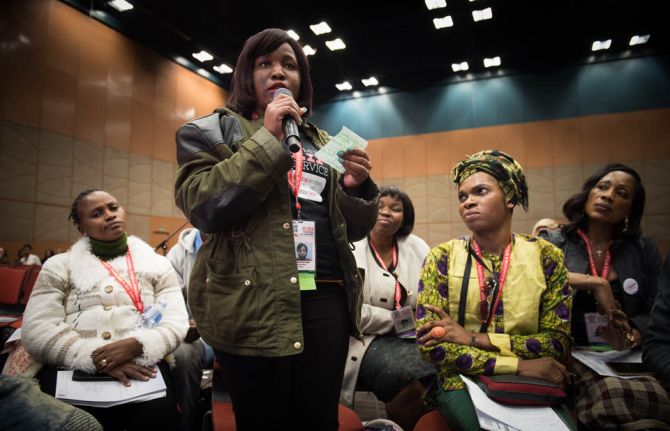
Update
Transgender preconference meeting
17 July 2016
17 July 2016 17 July 2016On 17 July, more than 400 representatives of transgender women and their supporters took part in the first transgender preconference meeting to be held at an international AIDS conference. The event, entitled “No more lip service: trans access, equity and rights now!”, was held in Durban, South Africa, on the eve of the 21st International AIDS Conference. It was organized by the Global Network of Transgender Women and HIV.
The event provided a forum to explore how services can be designed and implemented to be acceptable and accessible to transgender women, as outlined in a recently published practical guidance document, and included special sessions on human rights and gender-based violence. There were also presentations on the latest research into transgender people’s health in the Lancet and the Journal of the International AIDS Society.
The programme also looked at how transgender people could be better engaged in the Global Fund to Fight AIDS, Tuberculosis and Malaria. UNAIDS Deputy Executive Director Luiz Loures and the United States Global AIDS Coordinator and Special Representative for Global Health Diplomacy, Deborah Birx, spoke at the event and stressed the importance of involving transgender people in the AIDS response.
Quotes
“Our issues and vulnerabilities are more than just about HIV. Resources for transgender people are not reaching trans organizations and they do not have access to funding.”
“Fragile communities are everywhere and history shows that changes happen when the disempowered say “enough is enough” and take charge. The trans world is transforming the AIDS response.”
“Solutions lie in peer-led implementation. We see you, we hear you today and we want to be part of the solution with you.”
“We haven’t served the trans community well. We need to pay attention to quality risk assessment, not just financial risk assessment.”
Related

Update
Landmark court ruling in Egypt prohibits HIV discrimination in the workplace
01 July 2016
01 July 2016 01 July 2016Ahmed was dismissed from his job as a plumber for a club in Giza, Egypt, in 2015 after his employer discovered he was living with HIV. Rather than remain silent, Ahmed decided to pursue legal action with the help of the Al Shehab Foundation for Comprehensive Development.
The Al Shehab Foundation is an Egyptian nongovernmental organization that defends the legal rights of marginalized people, including the rights of people living with HIV to work and access education and accommodation without discrimination. The legal action was supported by the International Development Law Organization, which works closely with UNAIDS through a memorandum of understanding.
In a historic decision for Egypt and the region, a court in Cairo ruled in Ahmed’s favour, stating that people living with HIV cannot be dismissed because of their HIV status. The court’s directive, issued in February 2016, stated that employment is a basic human right for all Egyptian citizens, regardless of their health condition, as long as they can still work.
This seminal court ruling has been applauded by civil society, activists and international development organizations engaged in the AIDS response in Egypt and across the Middle East and North Africa. The ruling sets an important legal precedent for future discrimination cases and is consistent with UNAIDS guidance and the Arab AIDS Strategy (2014 – 2020).
Quotes
“The court ruling has changed my life significantly, as I no longer fear losing my job due to my HIV status.”
“We have been fighting for many years for an Egyptian court to affirm the right of people living with HIV to work without discrimination.”
“The court decision affirming the right of people living with HIV to work is consistent with relevant international legal frameworks.”
“This court decision will set an important precedent for ensuring zero discrimination in the workplace for the whole region.”
Region/country
Related
 Government ensures continuity of treatment in Malawi
Government ensures continuity of treatment in Malawi

10 February 2025

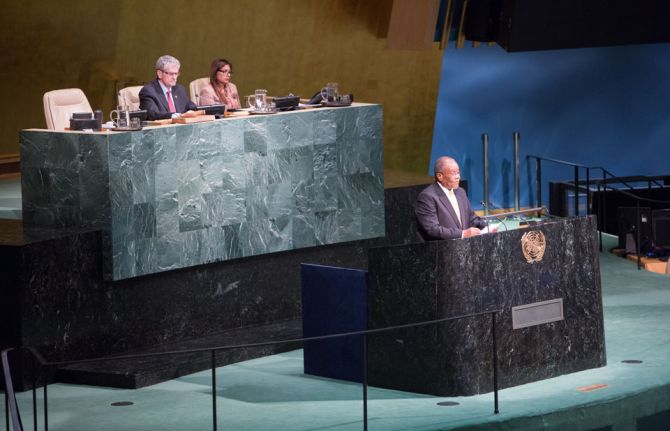
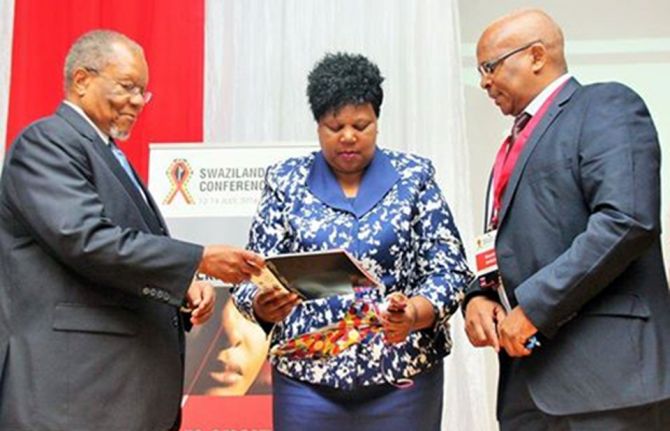
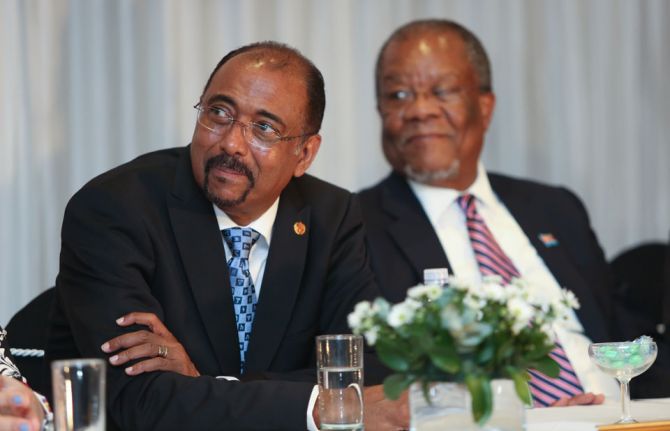
Update
Swaziland launches blueprint for HIV response at national AIDS conference
14 July 2016
14 July 2016 14 July 2016Swaziland’s Prime Minister, Barnabas Sibusiso Dlamini, has launched the country’s Umgubudla HIV Investment Case, which aims to implement King Mswati III’s vision of ending the country’s AIDS epidemic by 2022. Umgubudla means roadway or water stream.
The investment case identifies five areas for prioritized high-impact action: accelerating access to HIV treatment; increasing the number of voluntary medical male circumcision procedures; expanding HIV prevention programmes for adolescent girls; the prevention of mother-to-child transmission of HIV; and managing coinfection cases of HIV and tuberculosis.
Mr Dlamini launched the new strategy during the country’s first National AIDS Conference, which was organized by Swaziland’s National Emergency Response Council on HIV and AIDS and the Ministry of Health and was held from 12 to 14 July. Partners included the Swaziland AIDS Research Network, UNAIDS, the United Nations Children’s Fund and the Balsillie School of International Affairs.
Quotes
“Swaziland’s Umgubudla HIV Investment Case translates the King’s vision of achieving an AIDS-free generation into concrete, time-bound and clear action that will significantly reduce new HIV infections and AIDS-related deaths through feasible, cost-effective and sustainable measures.”
“This national conference is very timely as it happens just after the United Nations General Assembly High-Level Meeting on Ending AIDS, where leaders renewed their commitment by adopting an ambitious Political Declaration on Ending AIDS to accelerate global efforts to end the AIDS epidemic by 2030.”
Region/country

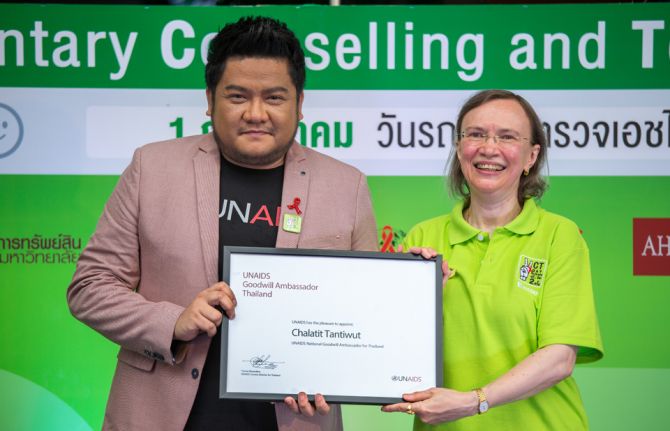
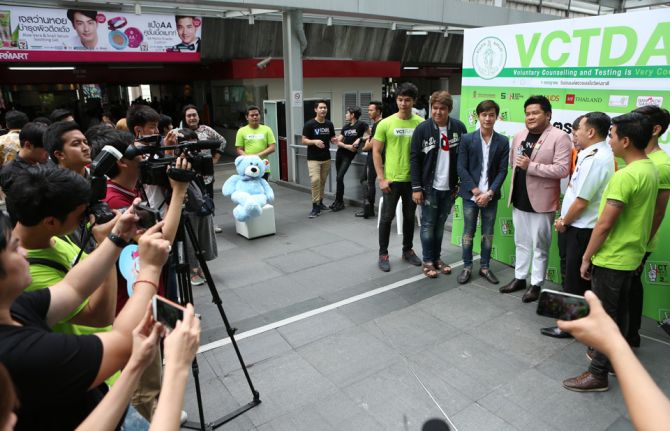

Update
Singer Chalatit Tantiwut appointed UNAIDS National Goodwill Ambassador for Thailand
01 July 2016
01 July 2016 01 July 2016UNAIDS has appointed the singer and television personality Chalatit Tantiwut as a UNAIDS National Goodwill Ambassador for Thailand.
The announcement was made on 1 July during a special National HIV Testing Day event hosted by the Bangkok Metropolitan Administration (BMA). The Deputy Governor of Bangkok, Pusadee Tamthai, was among the first to congratulate him.
Mr Chalatit will help raise awareness and promote greater use of HIV prevention, treatment, care and support services, particularly among gay men and other men who have sex with men.
Thailand has made immense progress in its AIDS response, with new HIV infections dropping by 56% since 2005. At the same time, there is a continuing epidemic among gay men and other men who have sex with men, especially in large urban areas. BMA’s Department of Health reports that in 2014 HIV prevalence among gay men and other men who have sex with men was 28.6% in Bangkok, which was much higher than among the general population.
Mr Chalatit’s powerful voice has entranced Thailand’s music scene for more than a decade. He has recorded numerous hits and has also acted in movies and television series.
Quotes
“I am honoured to be working with UNAIDS in this new role as National Goodwill Ambassador. As a gay man, I am concerned that the AIDS epidemic is striking hard the gay community in Thailand. It is my hope to help end the AIDS epidemic by intensifying efforts to ensure everyone accesses the services they need and no one is left behind.”
“Music is a powerful platform to reach people and the UNAIDS family is thrilled to work with one of Thailand’s most popular singers. By letting the music speak out Chalatit Tantiwut will help make a meaningful difference in the lives of people and advance Thailand’s efforts towards ending the AIDS epidemic by 2030.”
Region/country

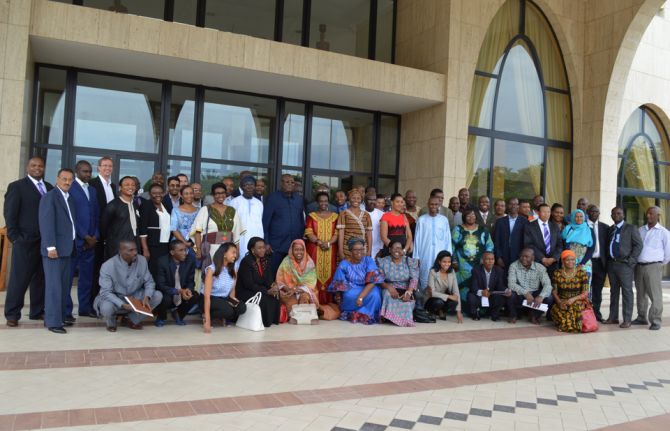
Update
AIDS Watch Africa meeting welcomes the Political Declaration on Ending AIDS and recommends its immediate implementation
04 July 2016
04 July 2016 04 July 2016At a meeting held in N’Djamena, Chad, on 28 and 29 June, the Consultative Experts Meeting of AIDS Watch Africa (AWA) has welcomed the recently adopted Political Declaration on Ending AIDS and recommended that it be included in national strategic plans for the AIDS response.
The meeting, convened by the African Union Commission, acknowledged the significant progress made in the AIDS response by many African countries, while noting that progress has been more modest in western and central Africa and that AIDS-related deaths and new HIV infections are actually increasing in North Africa. The meeting called for accelerated action to meet the challenges in ending the AIDS epidemic.
The recommendations of the Consultative Experts Meeting will be taken forward to the AWA Heads of State Meeting, which will take place later this month during the African Union summit in Kigali, Rwanda.
There were also recommendations on financing, access to medicines and the AWA strategic plan, as well as a review of progress made in establishing the Africa Centres for Disease Control and Prevention, which has asked UNAIDS to provide support in monitoring the AIDS epidemic.
Quotes
“There is no place for complacency in the response to end AIDS, tuberculosis and malaria. I wish to assure you that Chad will play its role as the Chair of the African Union and the Chair of AIDS Watch Africa.”
“Let us heed what the new data are telling us; we have to work hard and revamp the response in North Africa, and western and central Africa, which are lagging behind.”
“The recently adopted Political Declaration on Ending AIDS is historic, ambitious and forward-looking. It derives much from, and is aligned to, Africa guidance documents, such as the Catalytic Framework and the Common African Position to the High-Level Meeting—it’s a tool in our hands to help nations on the journey to end the AIDS epidemic by 2030.”
Related

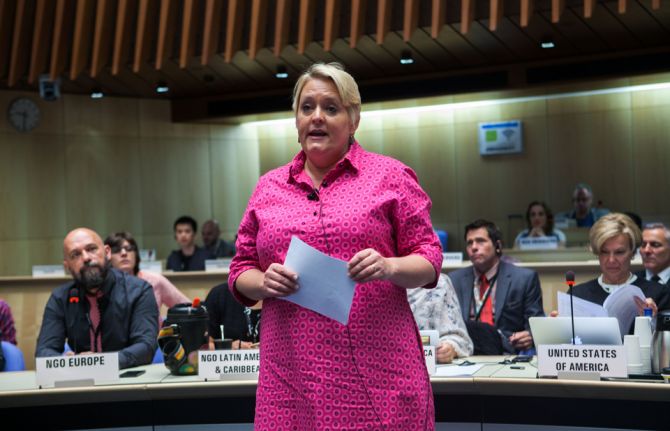
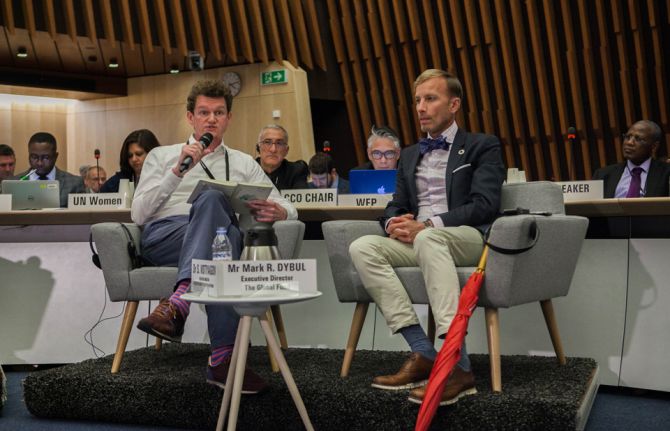

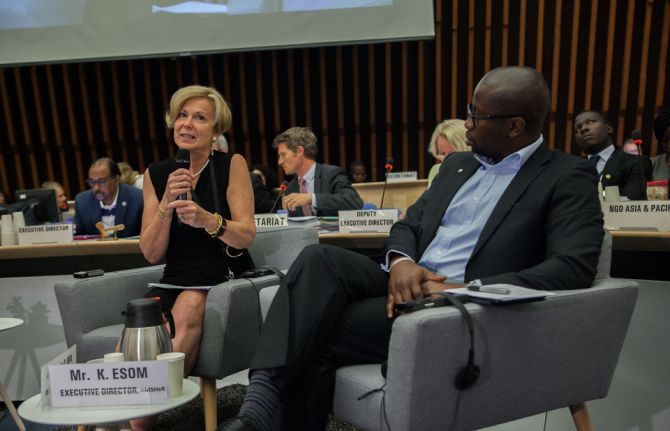
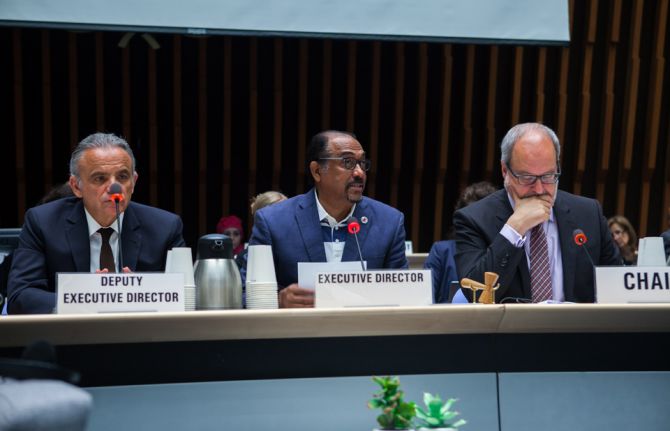
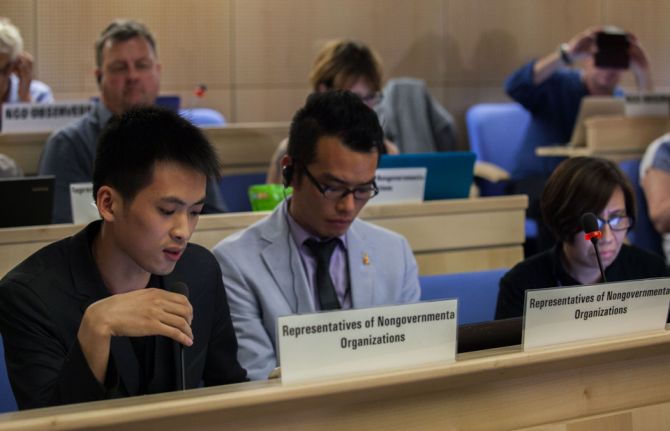
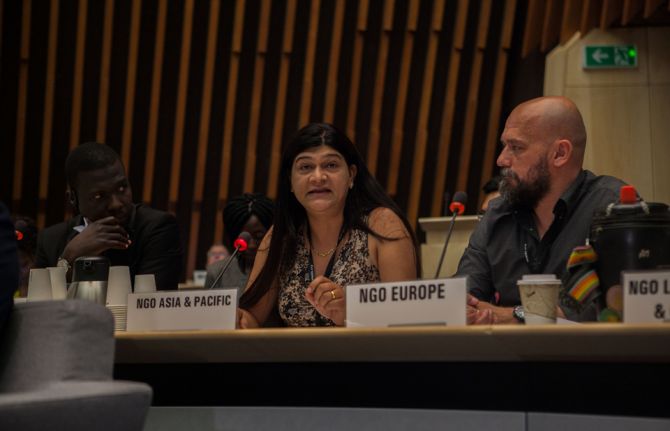
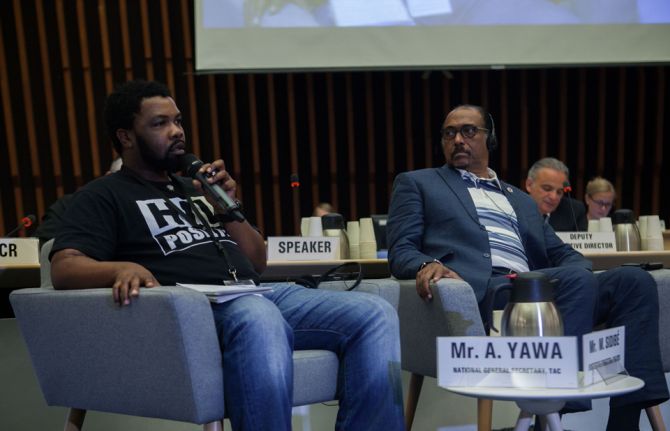
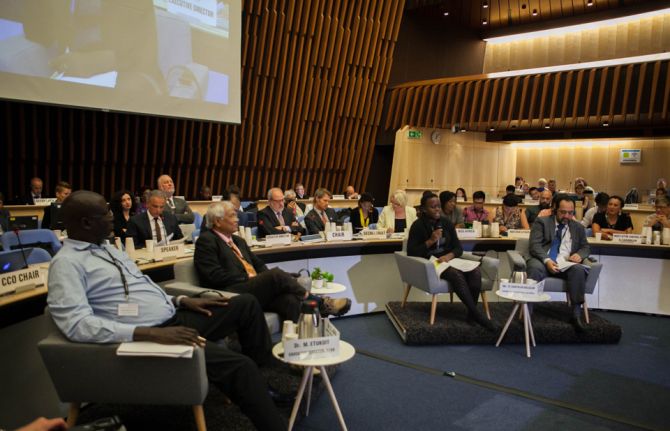
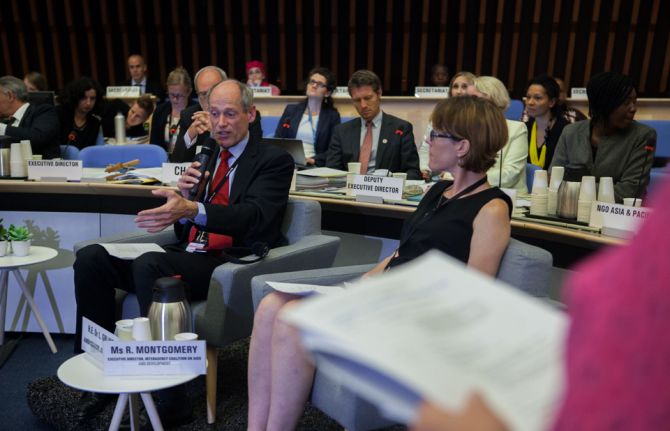
Update
Taking action to invest in community responses to HIV
01 July 2016
01 July 2016 01 July 2016The role of communities is essential in responding to the AIDS epidemic. Community advocacy, service delivery and participation in decision-making have shaped every aspect of the global AIDS response. Yet many community networks and civil society organizations are struggling to fund their work and too often community voices are not meaningfully included in policy dialogue, in particular the voices of key populations.
To identify specific steps to better include and finance community responses, more than 20 speakers came together in Geneva, Switzerland, on 30 June at the thematic day of the UNAIDS Programme Coordinating Board. The thematic session was entitled “The role of communities in ending AIDS by 2030” and included speakers from civil society, governments, development partners and academia.
While community responses need to be reinforced, including community-based service delivery and advocacy, many community organizations are not receiving the support they need to engage fully. In a recent UNAIDS survey of civil society organizations, 42% of respondents reported a decrease in their budgets since 2013, while a further 26% said their budgets had remained flat. Smaller organizations reported suffering most from cuts, while funding decreased or remained flat for every type of activity. Organizations focused on advocacy were worst affected.
There is strong evidence that community responses produce results and UNAIDS recognizes that there is an urgent need for them to be scaled up and fully integrated into national responses. Funding policies, national regulatory frameworks and inhibiting legal environments need to be reviewed to remove barriers that prevent the flow of funding from national and international sources to civil society organizations. Participants stressed that community responses must be fully integrated and become equal partners in delivering equitable, evidence-informed, gender-responsive and accessible services to all people who need them.
Over the past year, UNAIDS has issued a range of reports on the need for greater inclusion of, and investment in, community responses, including Governments fund communities, Invest in Advocacy, Stronger together, Communities deliver and Community-based antiretroviral therapy delivery.
Quotes
“It is best to consult the people affected in a community before you start anything—they must be involved.”
“Advocacy is when we say we can’t accept what is and we work to change it. Advocacy is the software for the hardware of services.”
“My worry is that if we don’t change business as usual we won’t achieve the shift from inclusion to full integration of community responses in national plans. And with inclusion there needs to be the funding necessary to fully support community responses and to tap community energy and expertise.“
“We need to hear your voices because it makes us and our programmes better. “
“Today is about sparking change. We want to talk about the policy agenda to better incorporate community responses and finance these responses.”

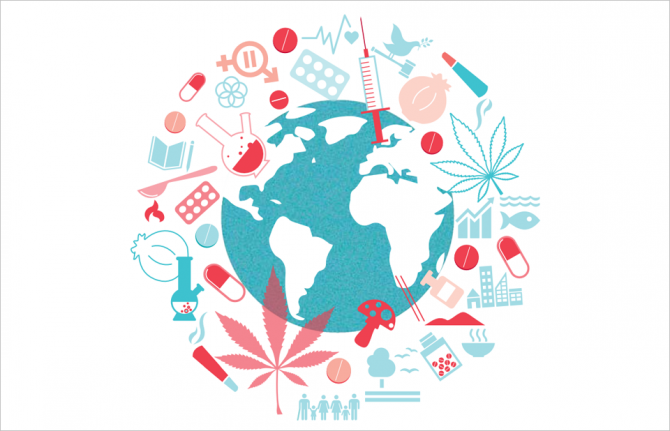
Update
UNODC launches World drug report 2016
23 June 2016
23 June 2016 23 June 2016The United Nations Office on Drugs and Crime (UNODC) has launched its annual World drug report, which shows that the number of people worldwide described as dependent on drugs increased to more than 29 million in 2014, up from around 27 million the previous year. Around 250 million people aged between 15 and 64 used at least one drug in 2014, a number that has remained stable for the past four years.
The report comes soon after April’s United Nations General Assembly Special Session (UNGASS) on the World Drug Problem, which resulted in a series of concrete recommendations that countries could adopt to reduce the impact of drugs.
Ahead of the UNGASS, UNAIDS released a report entitled Do no harm, which showed that the failure of many countries to adopt health- and human-rights based approaches had resulted in no reduction in the global number of new HIV infections among people who inject drugs between 2010 and 2014.
Quotes
“By providing a comprehensive overview of major developments in drug markets, trafficking routes and the health impact of drug use, the 2016 World drug report highlights support for the comprehensive, balanced and integrated rights-based approaches as reflected in the outcome document which emerged from the United Nations General Assembly Special Session.”
Resources
UNAIDS Cosponsors
Related

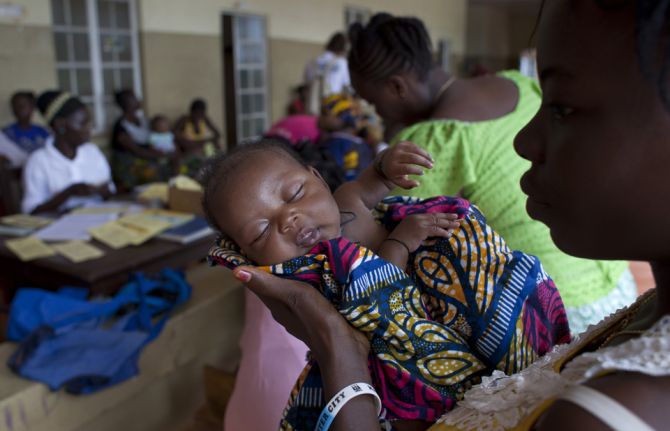
Update
WHO: Two cutting-edge technologies for HIV detection in infants receive WHO prequalification
23 June 2016
23 June 2016 23 June 2016Two innovative technologies for early infant diagnosis of HIV newly prequalified by WHO will allow many more infants to be diagnosed quickly and placed on life-saving treatment.
The products, Alere™ q HIV-1/2 Detect (made by Alere Technologies GmbH) and Xpert® HIV-1 Qual Assay (made by Cepheid AB) can be used to diagnose infants in as little as an hour, instead of sending a sample to a laboratory, which can take weeks or months to return a result.
In 2015, out of more than 1.2 million infants born to HIV positive mothers globally, just over half had access to an infant diagnostic test. That’s one of the reasons why only half of all children estimated to be living with HIV receive the treatment they need. The best way to diagnose HIV infection among infants is to use tests that look for evidence of the virus in the blood, rather than those that look for antibodies or antigens. Until now, those tests required lengthy procedures conducted in a special laboratory setting needing substantial infrastructure and training. These new technologies have simplified these procedures allowing for more infants to be tested, with faster results.
“These tests mark a significant breakthrough in our response to HIV in young children,” said Mike Ward, who leads the regulation unit of WHO’s Essential Medicines and Health Products department. “They are simpler, faster, automated platforms that do not require as much infrastructure as the conventional lab-based systems and can be used at or near the point of care.”
Both products are being studied in some countries with a high burden of HIV to determine how and where they should be used. WHO prequalification gives UN agencies and countries a guarantee of the tests’ quality, safety and performance, and the confidence to buy and use them.
“Using at or near-point of care technologies for early infant diagnosis of HIV has the potential to bring the test closer to the mother-infant pair and ultimately save the lives of children,” said Gottfried Hirnschall, Director of WHO’s Department of HIV.
Both tests use disposable cartridges which are pre-loaded with the chemicals needed to identify HIV in a blood sample. That means they are faster, smaller and easier to manage than other tests that require the type of infrastructure and technical training that is typically only found in major laboratories.
The Xpert® test runs on the same technology that is already being used to diagnose tuberculosis. To test for HIV, it merely requires a change of cartridge, making it a cost-effective platform that can be used to test for multiple diseases. Xpert needs a continuous power supply but very little training or maintenance, and can be done using whole blood or dried blood spots.
The Alere platform can run on a battery for up to eight hours, making it more suitable for use in remote and rural areas where there is no laboratory infrastructure and often few skilled health workers.
The prequalification is the result of an 18-month effort, including a collaboration between WHO, South Africa’s National Health Laboratory Service and the U.S. Centers for Disease Control and Prevention.
“We needed 150 HIV-positive infant specimens, which are thankfully difficult to come by,” said Mercedes Perez Gonzalez, a technical officer in the Department of Essential Medicines and Health Products who coordinated the performance evaluations of the two tests for WHO.
Every year, billions of dollars’ worth of medicines and other health products are purchased by international procurement agencies for distribution in low-income countries. The WHO Prequalification Programme works to ensure these agencies have the choice of a wide range of quality-assured products for bulk purchase at significantly reduced prices. Initially intended as a quality-assurance system for UN agencies, many low-income countries now use WHO’s lists of prequalified products to inform’ their procurement of medical products.
The programme prequalifies an average of 80 medical products a year, including medicines, vaccines, diagnostics and active pharmaceutical ingredients.
Quotes
“These tests mark a significant breakthrough in our response to HIV in young children”
UNAIDS Cosponsors

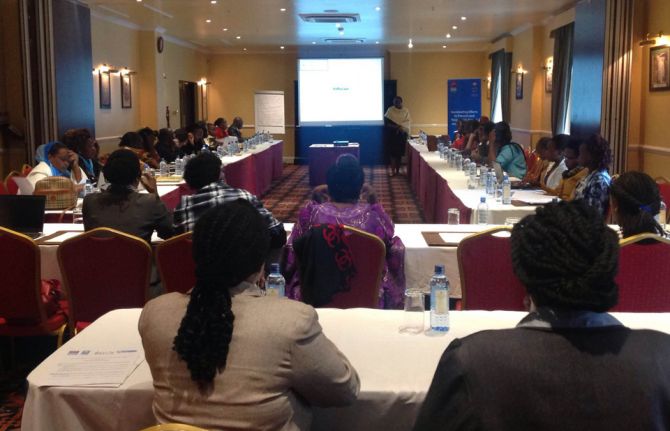
Update
Kenyan national forum against sexual and gender-based violence
30 June 2016
30 June 2016 30 June 2016A national forum of women living with HIV and women’s leaders was convened in Nairobi, Kenya, on 28 and 29 June to discuss sexual and gender-based violence, especially against women living with HIV.
Participants at the national forum, supported by the United Nations Development Programme and the national network of people living with HIV, in partnership with the National AIDS Control Council and UNAIDS, recognized the slow progress in realizing gender equality and women’s empowerment in Kenya.
The forum called for greater protection from, and response to, sexual and gender-based violence, including access to justice. The HIV and AIDS Tribunal of Kenya—the only HIV-specific statutory body in the world—was cited as a model that could be used to accelerate access to justice. It aims to protect and promote the rights of people living with and affected by HIV in Kenya by increasing access to justice. The forum participants agreed to engage with the tribunal to seek redress and information on preventing violence, especially against women living with HIV.
The forum stressed the importance of holding the government accountable for the implementation of policies and guidelines to protect women from violence, a significant driver of new infections among women and adolescent girls.
Gender-based violence is a global health challenge—women who experience violence are more likely to acquire HIV and women living with HIV are more likely to be subjected to violence.
Quotes
“We need to break the silence on gender-based violence; when situations define you, then they confine you. When we break the silence, we disempower the abuser.”
“I challenge you, women leaders, to harness your power and find solutions to our problems and identify actions for the future. Women need to act as a collective entity to address and respond to sexual and gender-based violence.”
"It is unacceptable that girls and women living with HIV continue to experience sexual and gender-based violence. We must accelerate our efforts towards gender equality and women empowerment through the HIV response, as called for by the 2016 Political Declaration."
“The HIV tribunal should be decentralized to the county level, and their decisions documented.”









